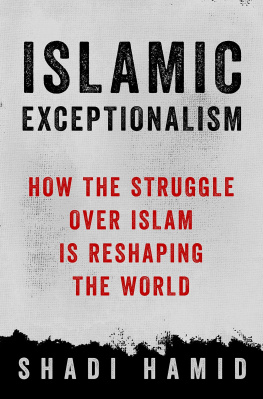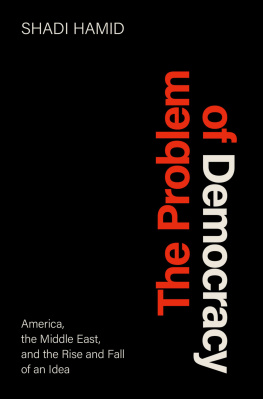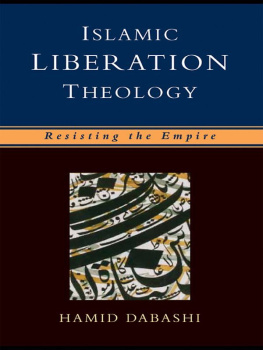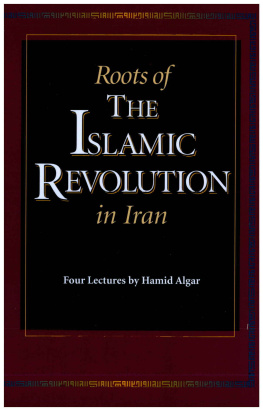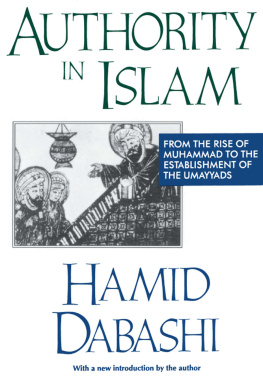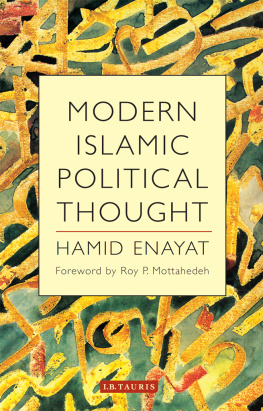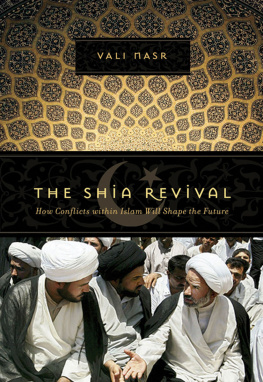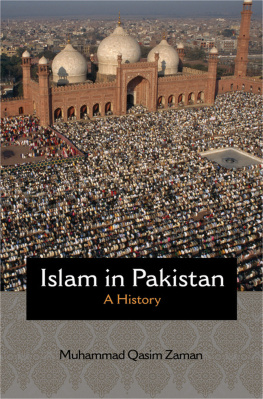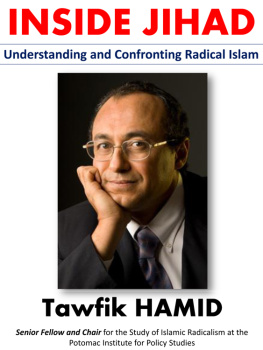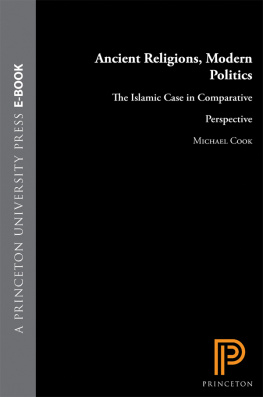
Shadi Hamid is a senior fellow in the Project on the U.S. Relations with the Islamic World at the Brookings Institution and a contributing writer for The Atlantic . He is also the author of Temptations of Power: Islamists and Illiberal Democracy in a New Middle East . Hamid lives in Washington, D.C. You can sign up for email updates here.

I have been living with this book for longer than I know. It is, in some ways, a very personal book. I have been changed by the events that I try my best to document in these pages.
I was moved. I was sad. I was hopeful. Sometimes, I read the newspaper (or my Twitter feed) and wanted to disappear, away from all of it. I joked with friends that I now had a darker view of human nature. Except it probably wasnt a joke. The Middle East has a way of changing you.
Thats part of what makes my work both so exciting and so disorienting. One of the most thrilling things as a researcher is to start a project not knowing where it will end and to be changed in the process. In this respect, writing this book was a fascinating experience of absorbing and learning and opening myself up to the possibilities of seeing thingswhether Islam, Islamic law, democracy, or the statein new ways. Many of those who call the Middle East home are rethinking their assumptions, so its only natural that weas outside researchers trying to make sense of a complex regionquestion our own assumptions as well, and God knows that we come with quite a few.
It is bittersweet to be writing this now, just a few months before publication. Im almost afraid of letting it go. I am also deeply grateful. So many people believed in this project, however provocative and unwieldy it may have first seemed. The Brookings Institution provided the ideal environment to read, research, to question myself, and to think about what I really wanted to do with this book. I have never been a part of an institution like Brookings that puts such a premium on ideas and letting them guide us, rather than the other way around. I was fortunate enough to have the constant support and encouragement of my colleagues. Many thanks are owed to Martin Indyk, Bruce Jones, and Tamara Wittes for nurturing such a supportive environment for the kind of serious, in-depth research that requires disappearing (or traveling in the Middle East) for significant stretches of time.
Michael OHanlon, Andrew Exum, Will McCants, Chris Meserole, Jennifer Williams, and Ken Pollack generously reviewed the full manuscript and offered extremely helpful suggestions, challenging me to further refine my ideas. Entire sections were rethought and rewritten due to Kens characteristically wise, thoughtful, and sharp comments. I thank Ken for pushing and challenging me during every step of the process, but most of all for believing in me.
In addition, Mara Revkin, who has quickly become one of the leading experts on ISIS governance; the young, rising Christian theologian Joshua Ralston; the great Princeton historian Michael Cook; and my friend and colleague Will McCants were all major influences. I cant thank them enough, even if they didnt realize what an important part of this book they ended up becoming. I am grateful to Norm Eisen for reviewing sections of the manuscript and being a ready and enthusiastic sparring partner on questions of religion and the power it holds over adherents in various faith traditions. Natan Sachs was kind enough to read the second chapter and helped guide me through questions of fundamentalismor the lack thereofwithin both Jewish religious practice and modern Israeli politics. I also thank my colleagues Suzanne Maloney, Natan Sachs, Khaled Elgindy, Kemal Kirisci, Dan Byman, and Rob Keane for offering their thoughtful comments and suggestions at various stages of the project.
I hope my research assistants didnt get sick of me, because they certainly put up with a lot. I wish I had more space to thank them not once, but many, many times. The idea for this book existed in my head, as early as the summer of 2013, long before I started writing. I thank Andrew Leber and Meredith Wheeler, who helped me refine the original book proposal when I was still at the Brookings Doha Center. Their enthusiasm played no small part in encouraging me to move ahead with the project. Here in Washington, D.C., Sarah Collins helped tremendously with the books first chapter and conclusion, tracking down piles of books and becoming, in short order, an expert on consociational democracy and power-sharing arrangements. Meanwhile, Kristine Anderson worked tirelessly to read early drafts of the first several chapters. She immersed herself in the intricacies of Islamist movements and, perhaps most important, told me when she thought I was wrong. Elizabeth Parker-Magyar provided additional research assistance in those scary, last few months before I submitted the first draft of the manuscript. Im happy to have had the opportunity to work with her. Sloane Speakman read and reviewed the entire manuscript probably several times (Im not sure I want to know exactly how many times). I remember telling her just a few days before a major deadline that I wouldnt have been able to do this without her. And I wouldnt have. Lastly, I thank Rashid Dar for taking a final look at the manuscript and helping me have everything in order for submission.
There are so many people in Egypt, Tunisia, and Turkey who were generous with their time and attention that I cannot begin to list them all. Without them, I probably would have been quite lost. Special thanks are owed to Mustafa Akyol, Abdelrahman Ayyash, Sayida Ounissi, Kadir Ustun, Joost Lagendijk, Mehmet Bayraktar, Sarah Feuer, Jihed Mabrouk, and Monica Marks. I would also like to thank the friends, scholars, and teachers who have, in so many different ways, influenced my research and writing, including Michael Willis, Laurence Whitehead, Michael McFaul, Stephen McInerney, Avi Spiegel, Steven Brooke, Stephane Lacroix, Courtney Freer, Charles Lister, Jacob Olidort, Peter Mandaville, Andrew March, Emad Shahin, John Voll, Mohamed Okda, Khalil al-Anani, Omar Ashour, Seth Anziska, Marc Grinberg, Thomas Carothers, and Eugene Rogan.
And, now, words are never enough for this part of it, but I will try. My parents found it somewhat confusing that I was working on another book. They would have preferred I take a break, because, well, writing can be stressful. I suppose its a bit of a clich, but it really does make a difference when your parents have your back. Theyve believed in me from the very first moment when it seemed like I might not become an engineer or a doctor and instead devote my life to studying, of all things, Islamist movements. I love them dearly and I really hope they like the book, after everything. My brother, Sherif, has been one of my biggest supporters, especially now that were back to living not too far apart from each other. He seemingly reads everything I write and has probably attended more of my talks than anyone else in the world. More important, hes always there for me, and I know I can give him a call whenever I want to get his thoughts on anything, whether its about the Middle East or not.
Portions of Chapter 7 draw on materials previously published as Radicalization after the Arab Spring: Lessons from Tunisia and Egypt, in Blind Spot: Americas Response to Radicalism in the Middle East , edited by Nicholas Burns and Jonathon Price. I thank them, as well as Brent Scrowcroft and Joseph Nye, for the opportunity to present my ideas in early form at the Aspen Strategy Group.
This book would never have happened without my wonderful agent, Bridget Matzie, who was a font of guidance and good advice from the very beginning. George Witte, my editor at St. Martins Press, was incredibly patient and supportive every step of the way. I thank him for believing in this project. Thanks are also due to Sara Thwaite and the rest of the team at St. Martins Press who helped move the book through production. They, and so many others, made this process as painless as I possibly could have hoped.
Next page
